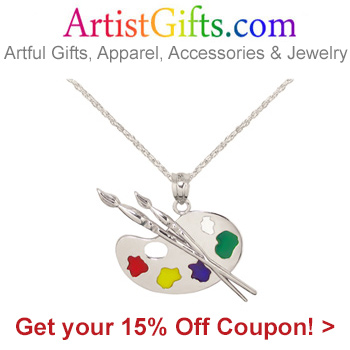by Carolyn Edlund
Tell people what to buy. They will thank you for it.
Guiding your customers in making a decision is a form of customer service. Who is the expert on your own artwork? You are! Use your knowledge and experience to make recommendations that will help your customers purchase just the right piece that they will love.
Otherwise, confusion and indecision can lead to no decision at all – and no sale. Consultative selling skills help in the following ways:
Avoid confusion. Have you ever walked into a pharmacy to buy a painkiller, and stared at the selection? There are about 400 choices filling the shelves. Just figuring out which one you need can turn the headache you came in with into a migraine.
Fewer is better. Any mother with preschoolers can tell you than you never ask them “What do you want to wear today?” You say, “You can wear the red socks or the blue socks. Pick one.” It works, and everyone is happy. They have a choice, and you have your sanity.
Avoid buyer paralysis with your customers by offering just a couple, or no options – and also by acting in a consultative way by suggesting or promoting easy ways to buy from you.
Here are some examples:
Wholesale
If you are exhibiting at a wholesale trade show, group your collections together to make an effective presentation, which will also function well as an order in themselves. You can easily suggest that you ship all the items in a collection that they prefer, which will meet your minimum order and make an impact in their store. This also discourages “cherry-picking” which doesn’t always do your work justice.
As a sales rep, I often walked into meetings with retailers to show new product or lines which they hadn’t bought. Quite frequently, I told them which lines I recommended for them, or would offer a “pre-select” package which came with a filled display. They took my advice, because they knew we both wanted to be successful with the line, that I knew the bestsellers, and that I stood behind my sales. Many times I would write a dollar amount on the order form, and the buyer would sign. I would actually create the order later, deciding what would go into their store based on my experience. They appreciated it.
Consultative selling is easy, quick, and lets your customers get on with business. Buyers don’t have a crystal ball. They don’t always know what will sell in their store, and making decisions on small order details is time-consuming and confusing. It will often cause them to balk or put off the order forever. Take those worries away by constructing a suggested order that meets their needs. Then, throw in some free shipping, or an extra item to make a sweet package that is even more appealing.
The easiest way to close deals is to remove barriers to the sales process, and make it easy to say “Yes.” Many times this involves making decisions for your customers, or offering fewer choices.
Retail
Bundle products together that make sense. Earrings go with necklaces, bracelets, and other jewelry. Offer them as a set, and mark them fairly. I often suggest to artists that they don’t even offer them separately. You might be surprised at your success. Men buy for women all the time at the suggestion of salespeople. Use what you know to be consultative with your gift sales.
Show your art in room settings, groupings, and on models to suggest how they can be used. This often gives people ideas they would never think of themselves. They love this type of “consultation” because most customers need a little help (think DIY and Style Networks.)
If you offer different color combinations, or different mats and frames, make the choices simple and easy. Let the Sherwin-Williams of the world offer 10,000 shades. You don’t have to. Plus, clients can actually get pickier and more dissatisfied if they are not totally thrilled with the final result, even when they made the decision.
If you are working on a commission which requires approval at every step along the way, by all means fulfill your obligations. Commissions, though, often require even more consultative input from you as the artist. You are the expert, and the client trusts you. Often, you must explain about your methods and materials, so that your work can be used, worn, or displayed correctly, and produce the desired result.
Consultative selling techniques put you more in control of each sale, and that’s a good thing. It saves you time and money, and can do the same for your wholesale or retail customer. Quite often, they appreciate that you told them what to buy, and everybody is happy.



What a great article. I find I naturally sell this way and help my clients choose something that they will be happy with for years to come; it’s great to have your thoughts clarify my own style of selling and give me more pointers. Thanks for sharing. (:
Rosemarie
This is a natural way to sell, and it’s also logical. Thus, it makes sense to customers too. I believe it is a part of customer service.
Another great post Carolyn. So happy I found your blog!
Mickey
Great post, as usual! Consultative selling is what made my business as an independent sales rep successful! I have reviewed and posted this wonderful article on my blog:
http://sellingtogiftshops.com/2012/06/18/consultative-selling/
Thanks for the great post Carolyn!
Sandy Dell
Appreciate your comment, Sandy. As you know, this is the essence of being a good rep!
Good post Carolyn. It is helpful for those who are feeling really not good.
I see some post- Business is going to fail, rather if someone business doesn’t survive, chances are those are the reasons. Seldom do I see a business fail because they are poor craftsman or make a bad pizza or are not skilled at their craft, the majority of times a business fails today is because they don’t know how to properly implement or they don’t have a sales and marketing plan.